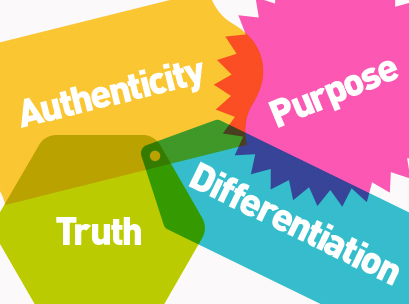![DAYE_MOFFITT[5]](https://insideretail.com.au/wp-content/uploads/2020/08/DAYE_MOFFITT51.jpg) Daye Moffitt, strategy director of brand agency, Principals, says building a retailer’s sense of authenticity is an imperative ingredient for success in today’s omnichannel retail environment.
Daye Moffitt, strategy director of brand agency, Principals, says building a retailer’s sense of authenticity is an imperative ingredient for success in today’s omnichannel retail environment.
Speaking ahead of Inside Retail Academy’s first event of 2016, ‘Managing Marketing in a Multichannel Retail Environment’, Moffitt spoke with Inside Retail about why retailers should take heed of brand authenticity. Below is the Q&A.
Inside Retail: Who are some examples of Australian retailers that employ or emphasise authenticity within their business?
Daye Moffitt: There are lots of global retailers doing it rather well and not so many Australian retailers, in my view. Aesop obviously comes to mind as there’s really not much they don’t do well and I think of them as quite a traditional authentic brand. What I mean by that is their authentic attributes are grounded in the idea of that hyper transparent approach to packaging. Even though they’re a relatively young brand they manage to convey a sense of heritage. They’re values are entwined within every experience, from the way that their stores are fitted out, through to the packaging. You really get a sense of what the brand is about every time you step into one of their stores.
IR: Is that what you would expect from a brand trying to establish authenticity?
DM: In my upcoming talk [at the Inside Retail Academy event] I argue (and believe) wholeheartedly that authenticity is about so much more than just heritage and transparency. These are the most common attributes related to the theme of authenticity, but it goes beyond these elements. I feel an authentic brand needs to have a really clear purpose and it needs to be built from the inside out. I also consider Lorna Jane to be authentic. I know there has been some rather unfortunate press about her, but putting that aside for a moment that’s one brand that has a very clear purpose. They’re all about inspiring women to have the best life through active living and again, like Aesop, they’re clear on what they stand for. They really permeate all the experiences to generate loads of content and experiences. It’s about staying really true to what they believe in.
IR: Do shoppers pay attention to the heritage of a brand or are they motivated to shop by product price and availability?
DM: I think heritage plays into authenticity, but it’s just one piece of a broader puzzle. As a brand I think identity is everything, because even from a price point perspective, in many ways you can’t differentiate on price forever. It’s unsustainable to just become the cheapest. When value really works is when it’s embedded into the identity. H&M is a wonderful example where the company is obviously motivated by price but that’s because it’s all about affordable fashion so what they stand for as opposed to the price point.
IR: How important is it to show how a product is made?
DM: There’s always the nervousness with consumers that if you’re not being transparent they assume there is something you’re trying to hide, admitting a sense of guilt. 87 per cent of global consumers factor corporate social responsibility into their purchase decisions. 81 per cent of millenials say they are looking for brands that showcase the way their products are created. And 89 per cent of individuals across 12 global markets said it was important for businesses to act with integrity at all times – surpassing the number who rated innovation (72 per cent). But authenticity is not just about social responsibility or staking claims around heritage and/or craftsmanship (which it is often misconstrued as). Authenticity (in my view) runs deeper than that and is defined by at least four key principles (which are the focus of my talk). One of these is about being proud of who you are. We build brands from the inside out. Key to this is ensuring every strategic element is based on truth and authenticity. It’s not enough to just be different – a brand needs to be able to back its claims and almost as importantly, have a higher purpose.
Daye will be speaking at the upcoming one-day intensive workshop, ‘Managing Marketing in a Multichannel Retail Environment’, to be held in Sydney and Melbourne later this month. Other speakers at the event include Uber general manager Australia, Simon Rossi; senior research consultant at the Australian Consumer, Retail, and Services Research Unit (ACRS) at Monash Business School; Dr Violet Lazarevic; Stylerunner founder and CEO; Julie Stevanja; SDL social intelligence lead, Dave Goodfellow; and Demandware director, customer success and retail practice, James Johnson.
To find out more about the event visit: http://insideretail.com.au/event/managing-marketing-multi-channel-retail-environment/
Go into the draw to win two free tickets by visiting: http://insideretail.com.au/blog/giveaways/retail-marketing-workshop-giveaway/
Want more Inside Retail? Subscribe to Inside Retail Weekly now and get our premium print publication delivered to your door every week.






